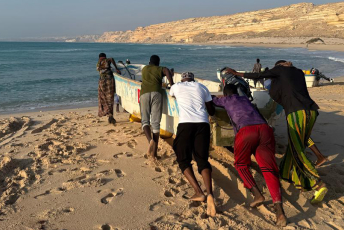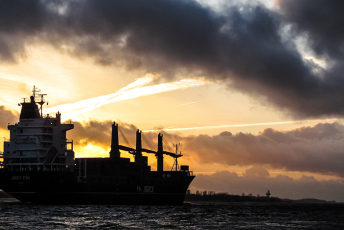The lack of development remains an issue in the Gulf of Guinea, a coastal region covering over 6 000 km2 of territories rich in oil, minerals and natural resources in West, Central and Southern Africa. In 2001, countries in the region adopted a Treaty establishing the Gulf of Guinea Commission (GGC). This institution would guide cooperation and development – managing border disputes and resolving issues that arise from the exploitation of natural resources, particularly within the Exclusive Economic Zone.
Initial signatories were Angola, the Republic of Congo, Equatorial Guinea, Nigeria, and São Tomé and Príncipe. They were later joined by Cameroon and the Democratic Republic of Congo (DRC) in 2008.
At the establishment of the GGC, member states could reach a combined oil production of five million barrels per day from deposits that made up as much as a tenth of the world’s oil reserves. However, land and maritime boundary disputes among member states subsequently undermined this potential. The most widely publicised of these was a dispute between Nigeria and Cameroon over the Bakassi Peninsula, settled in an International Court of Justice ruling of 10 October 2002.
Similarly, ownership claims over the Mbanie Peninsula between Equatorial Guinea and Gabon came to a head in 2003 when Gabon laid claim to the Corisco Bay Islands of the peninsula. Further South of the Gulf of Guinea, Angola and the DRC also tussled over offshore oil reserves.
Paralysed by political lethargy and a lack of funding, the GGC only began operations in 2006, when the first Summit of Heads of State and Government was held in Gabon.
The GGC Treaty requires that at least one summit takes place every year, but the second summit took place two years later – in November 2008. On that occasion, leaders recommended that the Gulf of Guinea be transformed into a ‘peace and security priority zone’. At the third summit, in August 2013, leaders reiterated concerns over the threat posed by piracy, armed robbery and illicit activities at sea, and reaffirmed a desire to ‘revitalise’ the commission and make it ‘operational’.
But other regional maritime initiatives were already taking shape, with the following developments:
- The Economic Community of Central African States (ECCAS), adopted a protocol in 2009 to secure its maritime interests in the Gulf of Guinea, and set up the Regional Centre for Maritime Security in Central Africa.
- The Economic Community of West African States (ECOWAS) followed suit with its own maritime strategy in March 2014, setting up the Regional Centre for Maritime Security in West Africa in 2015.
- Growing maritime insecurity led to the West and Central African Summit on Maritime Piracy in the Gulf of Guinea, which was held in June 2013 in Yaoundé, Cameroon. This resulted in the adoption of the Yaoundé Code of Conduct, and the creation of the Inter-Regional Coordination Centre (ICC).
- ECCAS, ECOWAS and the GGC then adopted an additional protocol relating to the organisation and functioning of the ICC in June 2014. The ICC became operational in 2015.
- The African Union also added the 2050 African Integrated Maritime Strategy (AIM 2050 Strategy) for seas and oceans in January 2014, and the African Charter on Security and Safety and Development in Africa (Lomé Charter) in October 2016.
However, at its fourth summit held in November 2017 in Abuja, Nigeria, steps were taken that may result in a more relevant role for the GGC.
The so-called Strategy for the Revitalisation of the Gulf of Guinea Commission details how the commission might improve its role in the region’s maritime peace, security and development framework. Among the measures it proposes is a recommendation for the establishment of specialised committees. These would be grouped into five thematic areas, namely peace and security; movement of goods and persons; natural resources, oil, environment; fisheries; and finances.
The commission’s detailed strategic plan is a starting point in potentially revitalising the organisation, but it remains unclear how it can carve out a role that differs sufficiently from the existing initiatives outlined above.
In addition, as with other regional institutions, resourcing remains a major limitation for the GGC. Even if all eight member states contribute their fixed annual amounts of US$500 000, the GGC will still face financial difficulty.
Countries in the region are increasingly calling for maritime concerns to be prioritised, including the sustainable exploitation of marine resources, the building of a blue economy, and an end to piracy and unregulated and unreported fishing. It remains to be seen whether the regional institution charged with ensuring the security and regulation to enable this, is able to engage meaningfully with this role.
Agnes Ebo’o, ENACT regional organised crime observatory coordinator – Central Africa, ISS







